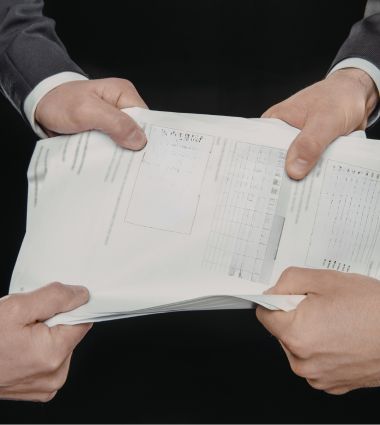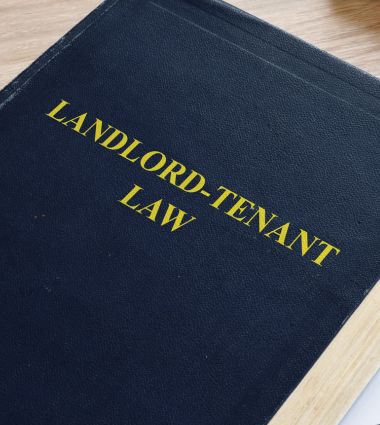How to Understand Real Estate Contracts with a Lawyer
Understanding a real estate contract can feel like swimming through a sea of unfamiliar terms, especially when it’s packed with fine print and legal language. It’s understandable to feel a bit intimidated; after all, buying a property in Ontario is a big step, both financially and legally. But with a trusted real estate lawyer by your side, you don’t have to figure it all out on your own. They can break down the details, and clarify your rights, so you understand any terms that might impact you financially.
From offer dates to inspection clauses, every aspect matters — even the small details like timelines or property disclosures. These things can carry weight if they’re not fully understood. Having a lawyer who knows Ontario’s real estate laws means having them involved can ensure that nothing important slips through the cracks, allowing you to move forward without any surprises.
Whether you’re buying your first home or investing in another property, this guide will help you understand what to look for in a real estate contract. With the right support and a little patience, you’ll feel confident and ready to take on this exciting new chapter.
The Importance of Reviewing Real Estate Contracts
In Canadian real estate transactions, having a lawyer review your contract isn’t just a “good-to-have”— it’s often necessary. Here’s why this step can save you headaches and safeguard your interests.
Protecting Your Legal Rights
Think of a real estate lawyer as your advocate in the fine print. Their job is to make sure every clause aligns with your best interests and that you’re not unknowingly agreeing to terms that can create problems along the way. Basically, they’re there to protect you from unexpected liabilities, so you’re not taken by surprise after signing.
Spotting Issues Before They Become Problems
A lawyer’s eye can catch issues most of us would miss. They’ll look for unclear terms on things like property boundaries or conditions about who’s responsible for future repairs. Addressing these before you sign means fewer bumps and smoother ownership later. It’s the “ounce of prevention” approach: small steps now can prevent bigger problems in the future.
Cost-Effective Peace of Mind
Sometimes, hiring a real estate lawyer for your closing will include a contract review at no extra charge, making it a worthwhile step for peace of mind. Even if there’s a small fee, it’s a reasonable investment considering the security it brings. With a clear, lawyer-reviewed contract, you’re positioned to move forward confidently.
Real estate contracts might seem overwhelming, but with the right legal guidance, you can proceed with clarity. Don't hesitate to lean on the expertise of a real estate lawyer — this is your future you are talking about.

Key Clauses to Understand in Real Estate Contracts
When you’re getting into real estate contracts in Canada, understanding each term and clause can feel like solving a puzzle — but breaking it down step-by-step can make things clearer. Let’s walk through some basic parts of these contracts so you feel confident, even if it’s your first property transaction.
Parties Involved and Property Description
Right at the top, the contract should clearly state the parties involved and provide a full property description. This section covers who’s buying and selling, but it’s more than just names and addresses. Look for details about the property lot size, legal description, and any fixtures included in the sale.
If you’re unsure about anything, a real estate lawyer can explain these elements, helping you spot any common pitfalls in real estate agreements before you move forward.
Purchase Price and Payment Method
The next big section spells out the purchase price and payment method. Whether you’re buying with a mortgage, cash, or a mix, it’s all specified here. This part might look straightforward, but there’s often more to it.
Some contracts include special payment terms or conditions that a lawyer can help you understand, like if funds need to be transferred by a specific date or if the offer depends on financing approval.
Deposit and Closing Date
Once you’ve agreed on the price, the next step is usually a deposit, sometimes called “earnest money,” to show you’re serious about buying. The contract will specify how much you need to deposit, along with a due date.
This money is often held in trust until closing. And speaking of closing, the contract will also specify your official move-in date. Make sure this date works for you, as it’s the day you officially become the owner, and any changes down the line can add complications.
Real estate contracts often have specific clauses that can be tricky to understand on your own, especially if it’s your first time. Legal guidance in real estate contracts can save you from unwanted surprises.
Your Toronto's legal help can help with everything from explaining contract clauses for real estate buyers to reviewing any contingency clauses tied to inspections or financing. They know what to look for to protect your interests and ensure the contract aligns with Ontario property laws.
The Role of Real Estate Lawyers in Contract Reviews
When it comes to real estate contracts in Canada, having a real estate lawyer can make a world of difference. From spotting hidden risks to ensuring your rights are protected, real estate lawyers do a lot more than review paperwork.
They’re there to walk you through every key step in the real estate contract review process, so you feel confident and well-informed throughout.
Title Searches and Money Transfers
One of the most important roles a real estate lawyer plays is conducting a title search. This checks for any issues in the property’s history (liens or ownership disputes) that could complicate your purchase. And when it comes time to transfer funds, your lawyer makes sure the transaction is secure, so your money stays safe and goes where it should go. It’s all part of helping you avoid common traps in real estate agreements.
The Attorney Review Period
After you sign a contract, there’s often a 3-5 day “attorney review period,” a critical time for your lawyer to examine every clause and catch any surprises before they become problems. This step is all about making sure your contract is solid and gives you the protection you need for a smooth transaction.
Ownership and Legal Assistance
Real estate contracts can be filled with technical language around ownership and other key rights. Your lawyer breaks these down into plain English, explaining anything that seems confusing. Be it understanding specific legal terms in property transactions or clarifying the fine print on repairs or timelines, your lawyer is there to make the process less stressful for you.
In the end, real estate contracts can feel complex, but a knowledgeable lawyer helps make it clear and straightforward. Trust in their expertise — they’re there to ensure your real estate transaction goes as smoothly as possible, helping you make confident decisions along the way.

Tips for First-Time Home Buyers on Understanding Contracts
As a first-time home buyer in Canada, your real estate contract is your legal foundation, and it’s packed with details that impact your financial and future commitments. Let’s walk through some key parts to help you feel more confident before you sign.
The Basics of Purchase Agreements
At its core, a real estate purchase agreement includes the essentials: names of both buyer and seller, a description of the property, the purchase price, and the closing date. Picture it as a roadmap for the transaction, showing exactly what each side has agreed to.
Contingencies: Your Safety Net
One of the most important parts of any purchase agreement is the contingencies section. Contingencies are conditions that must be met for the deal to proceed, acting as protection for you. Common contingencies include:
- Financing Approval: Confirms you have mortgage approval before committing.
- Home Inspection Results: Gives you the right to withdraw if major issues arise.
- Sale of Your Current Home: If you need to sell before buying, this protects you from overlapping financial obligations.
These clauses are there to protect you, so knowing them inside and out can save you from future stress.
Why Pre-Offer Understanding Matters
Spending a bit of time on contract details before making an offer helps you ask better questions and negotiate more confidently. It’s like getting a sneak peek at what you’re signing up for. And with the right guidance from a real estate lawyer, you’ll have someone by your side to break down the complex terms, so everything lines up with your best interests. A clear understanding now means fewer surprises later on.
Taking the time to really know the contract, with the help of a trusted lawyer, can make all the difference in making this major purchase feel like a win.
FAQ: Understanding Real Estate Contracts in Canada
What are the basic elements of a real estate contract?
In Canada, real estate contracts must include key details like the property's address, purchase price, closing date, and conditions of sale. It's necessary to understand these elements to make sure you're getting what you expect. A real estate lawyer can help explain any confusing terms or clauses, making sure you're fully informed before signing.
What should I look for in a real estate contract as a first-time buyer?
As a first-time buyer, pay close attention to contingencies, such as home inspection and financing clauses. These protect you if issues arise. Also, understand the deposit requirements and any penalties for backing out. Don't hesitate to ask your real estate lawyer to clarify anything you're unsure about – that's what they're there for.
How long do I have to review a real estate contract before signing?
In Canada, there's generally no set timeframe, but it's wise to take at least a few days to review. Don't feel pressured to sign immediately. A thorough review with your real estate lawyer can save you from future problems so you are making an informed decision.
Real Estate
Family Law
Wills & Estates
Immigration
Join Our Mailing List.
Sign up with your email to receive our newsletter and stay informed about the latest legal developments and special offers.



















































































